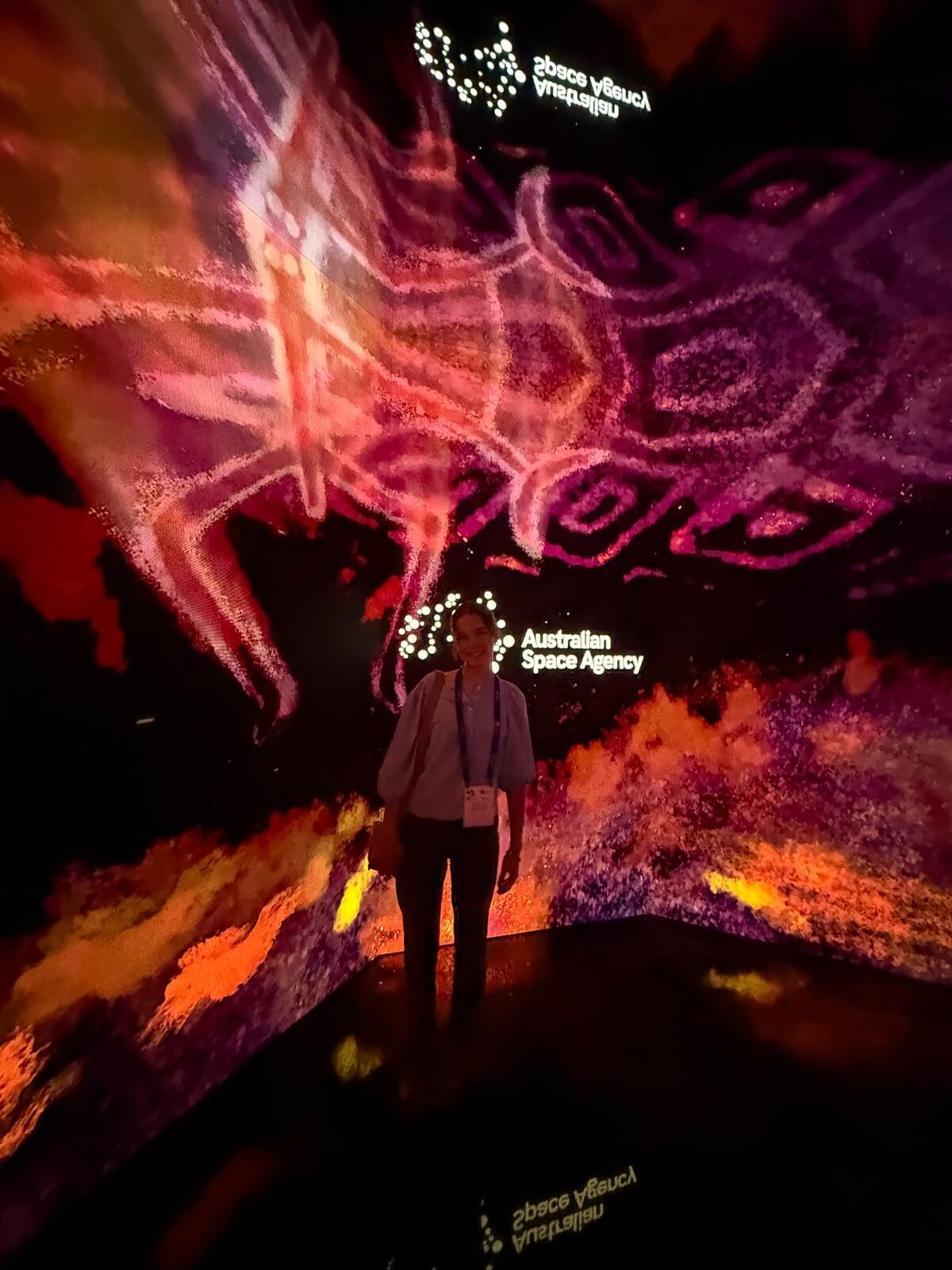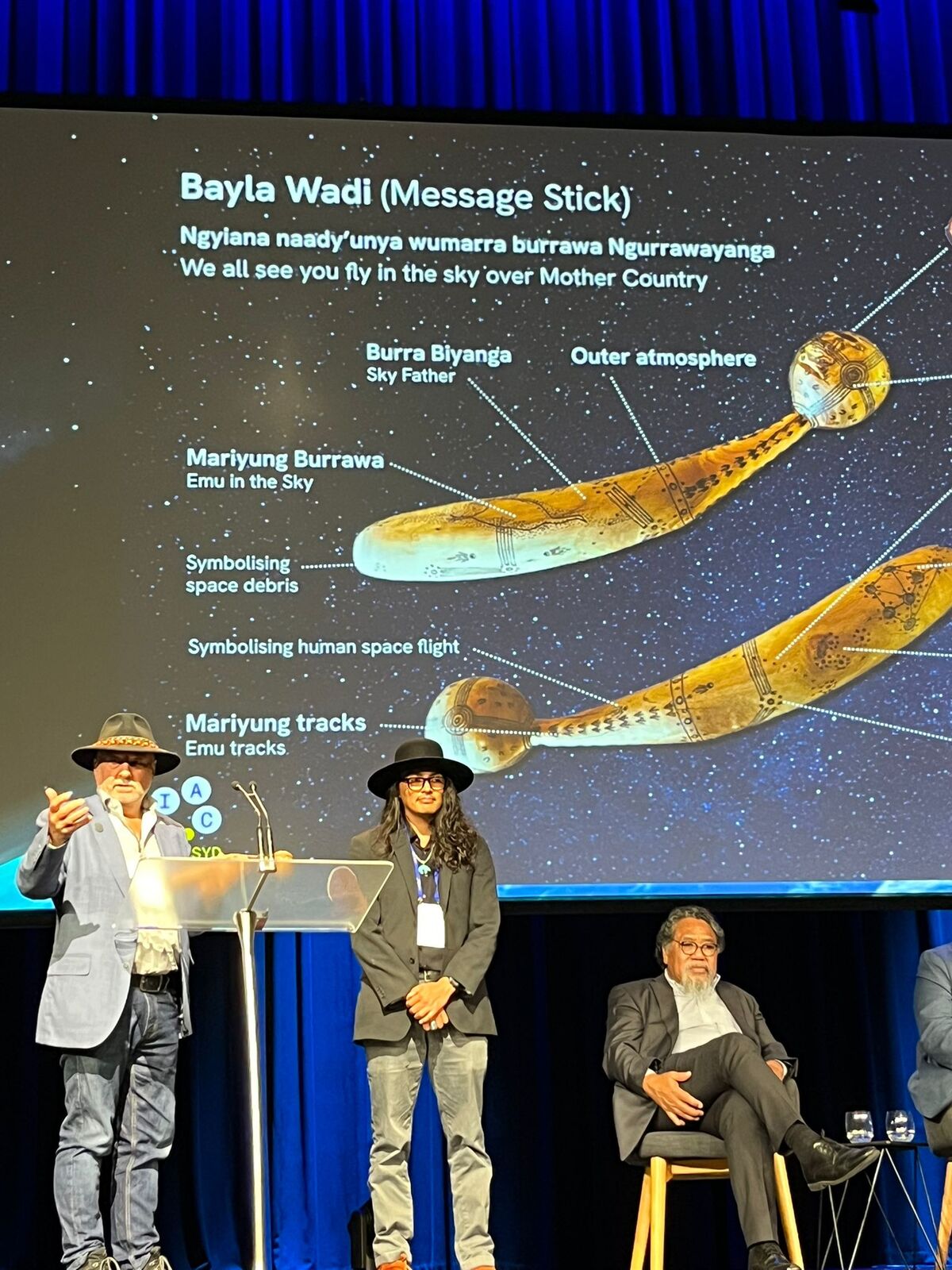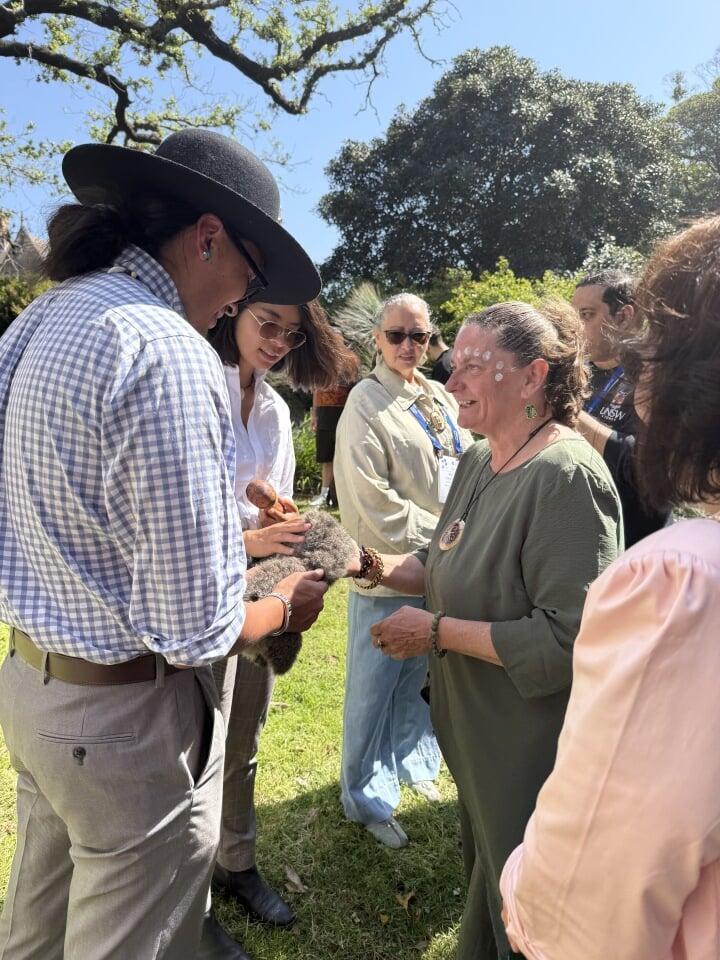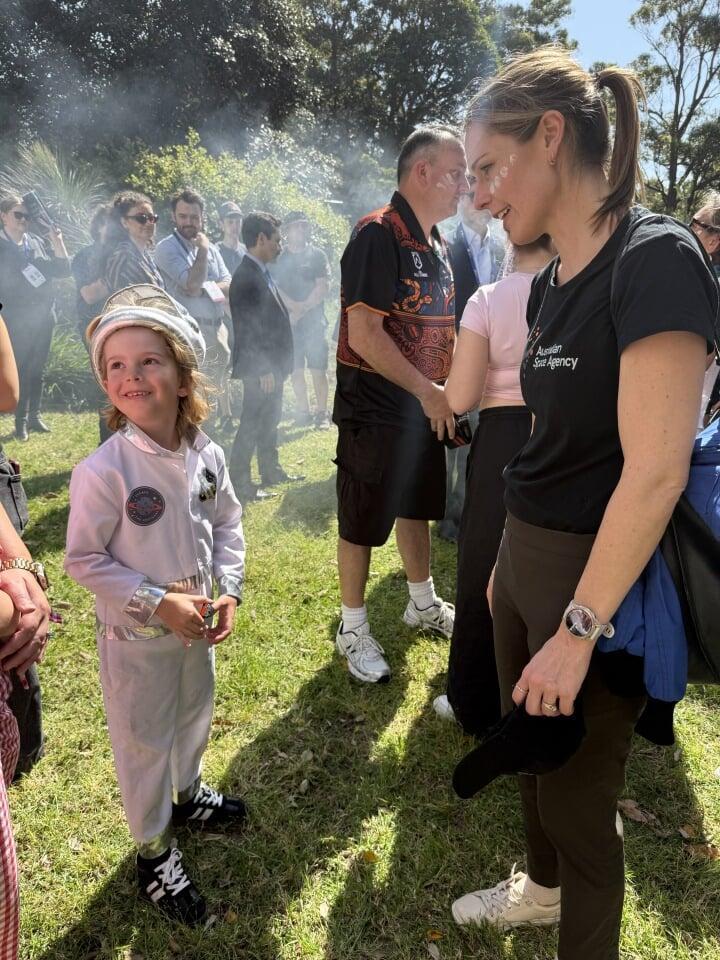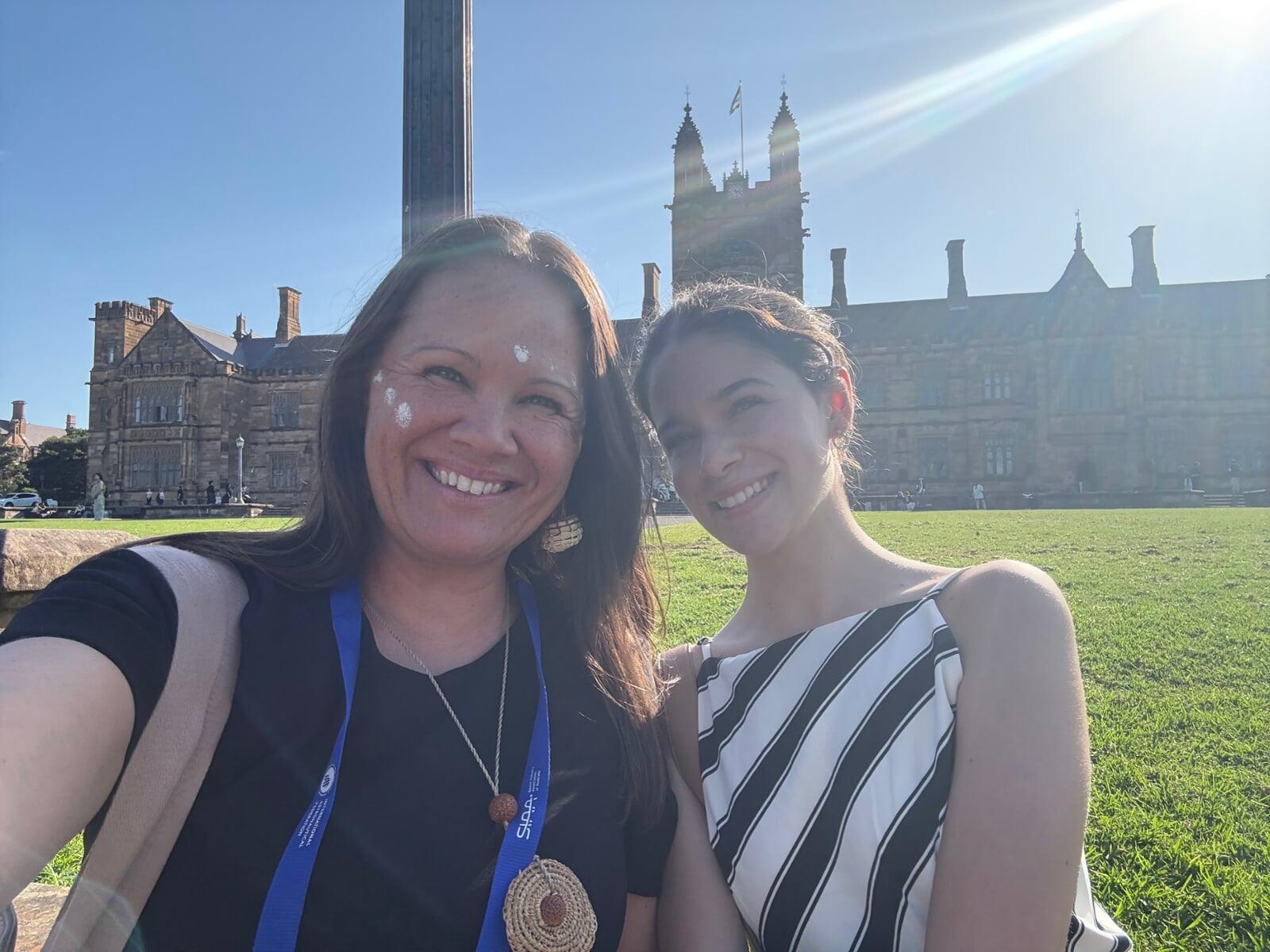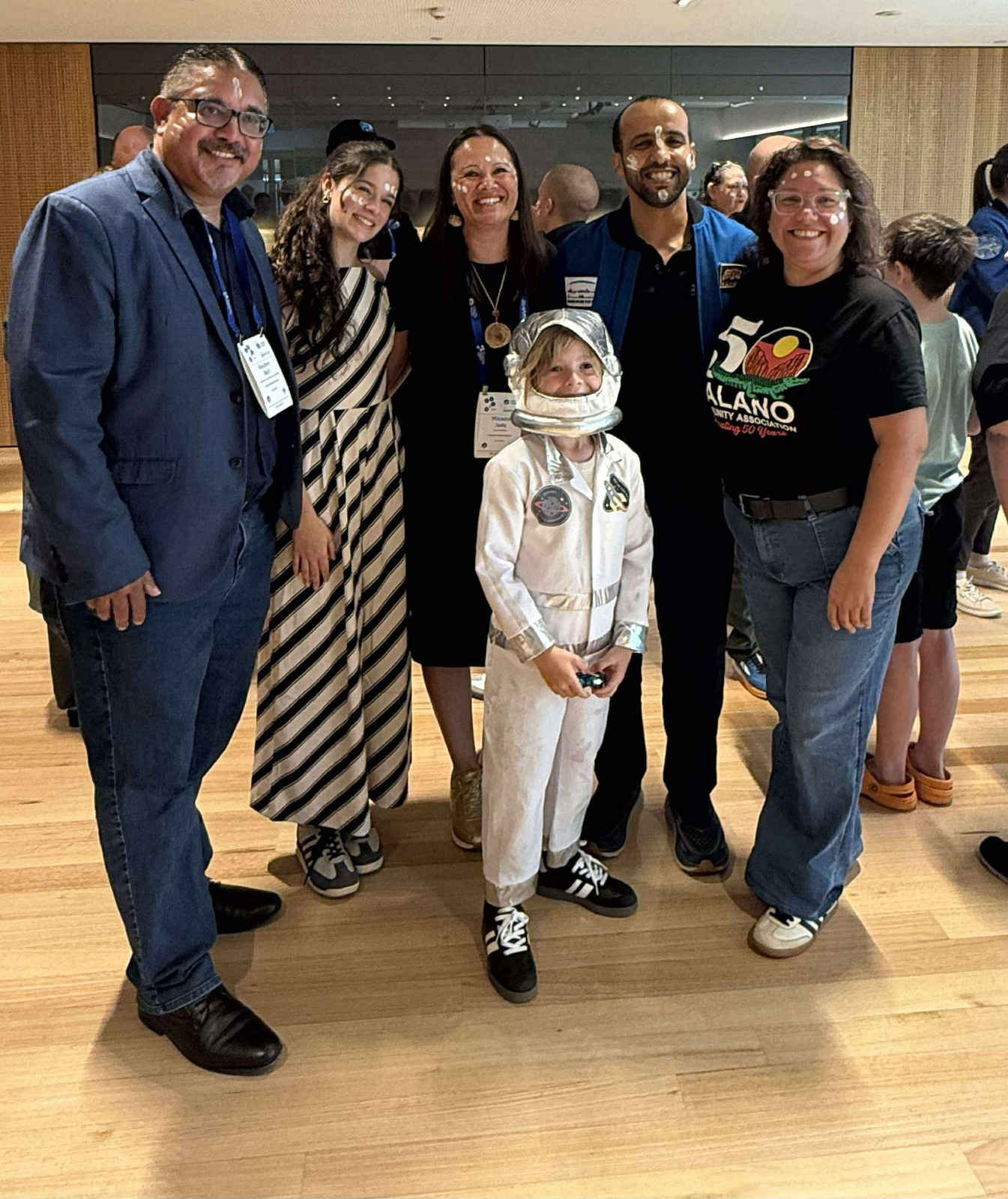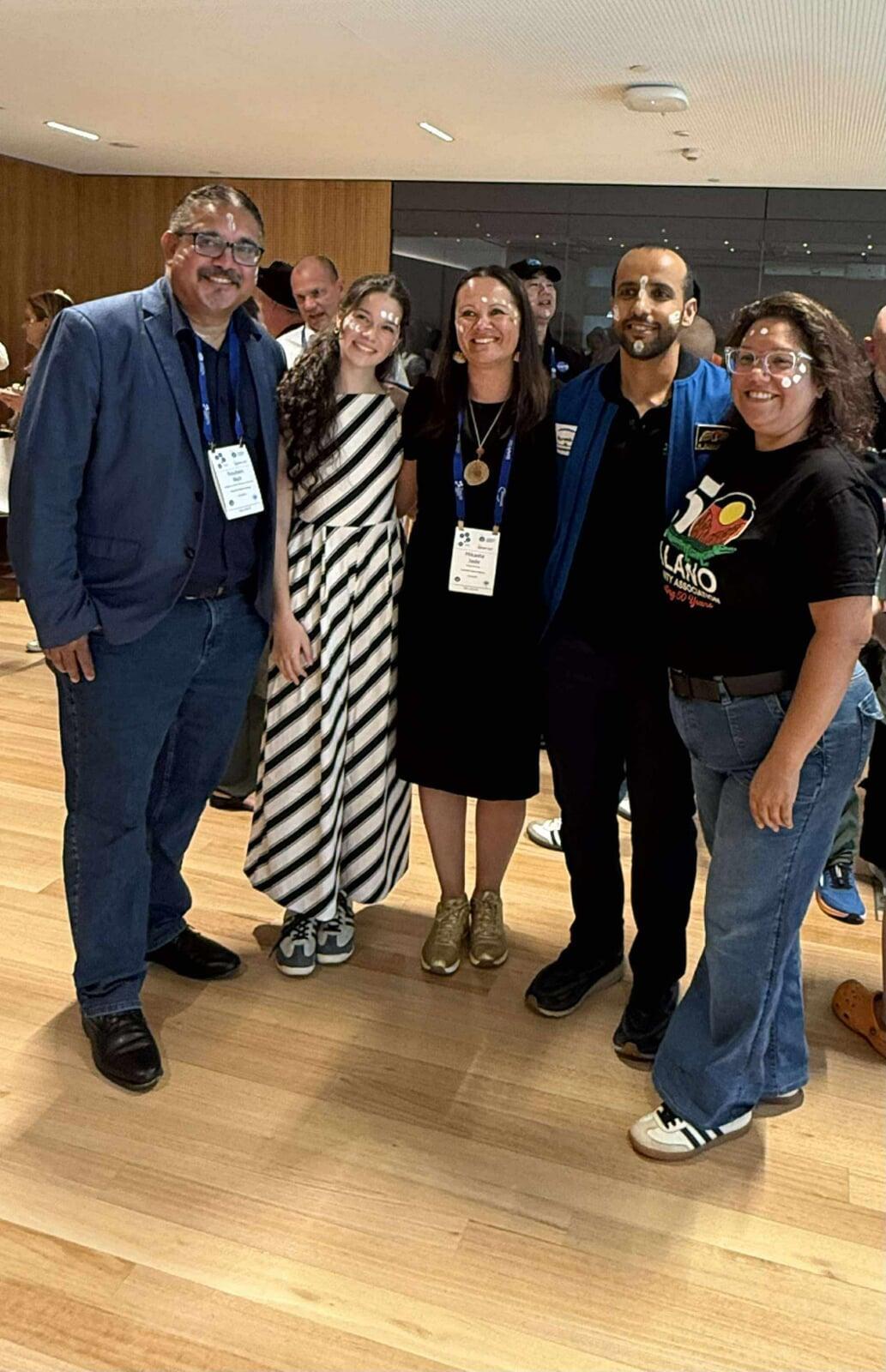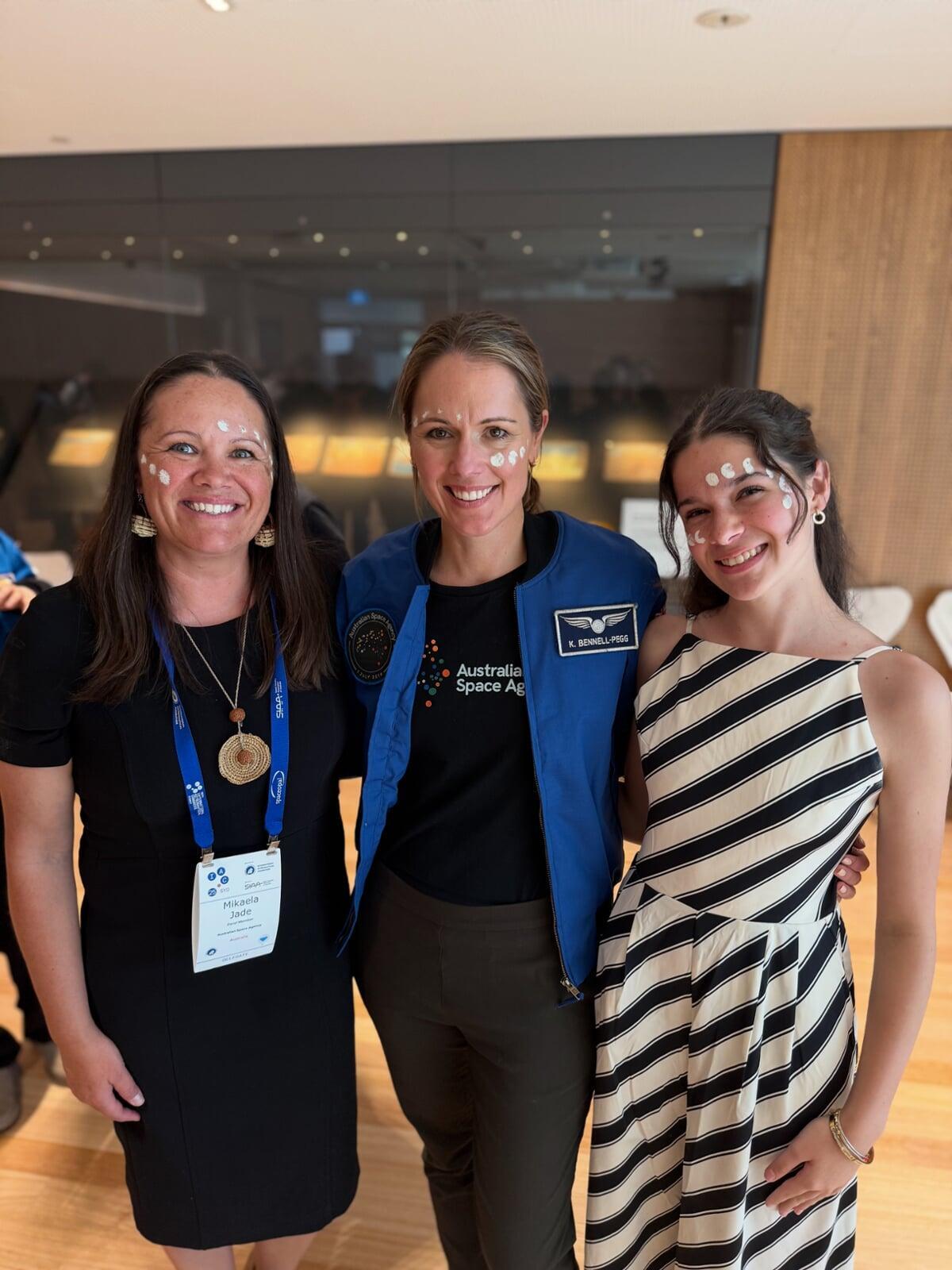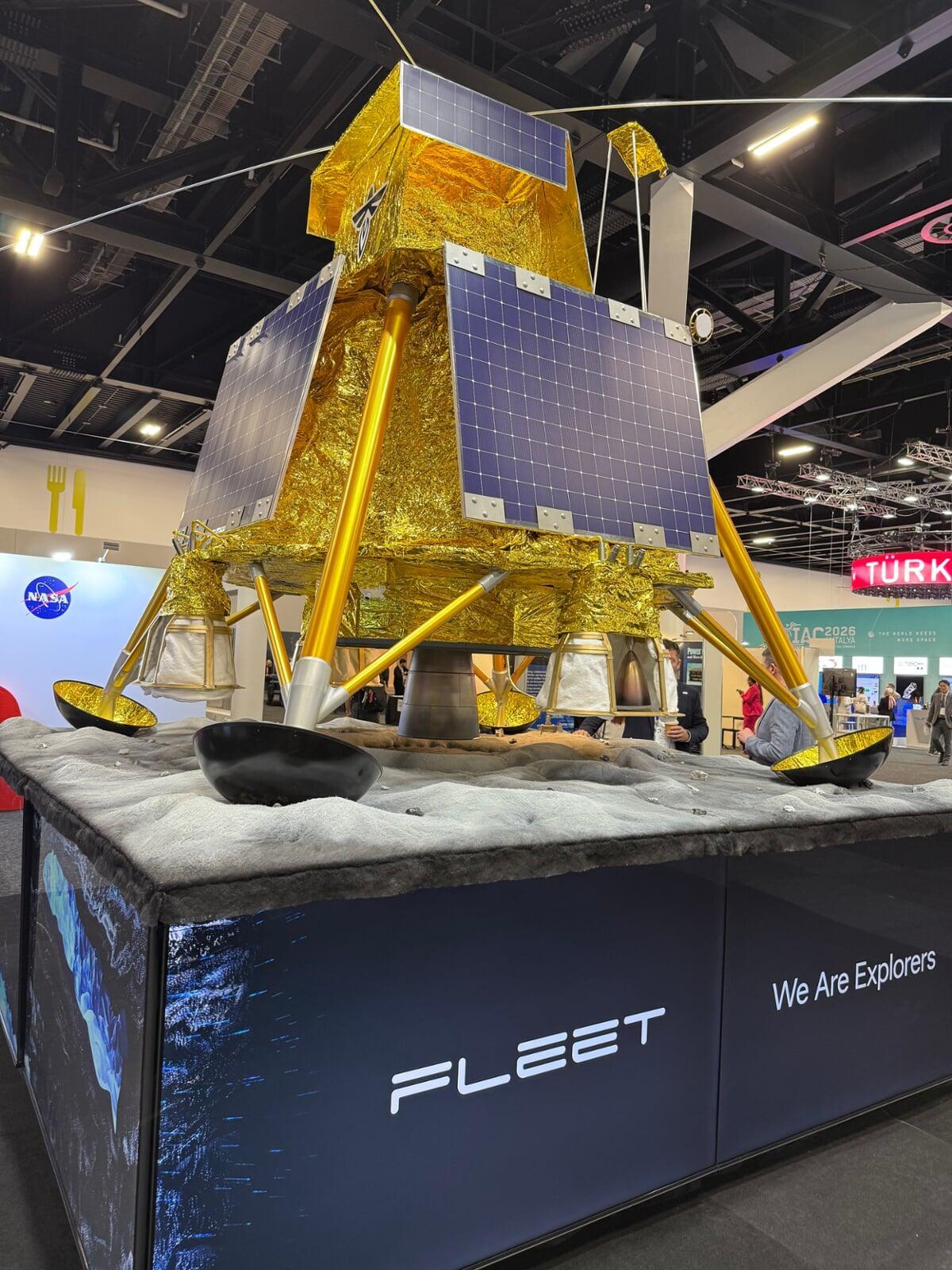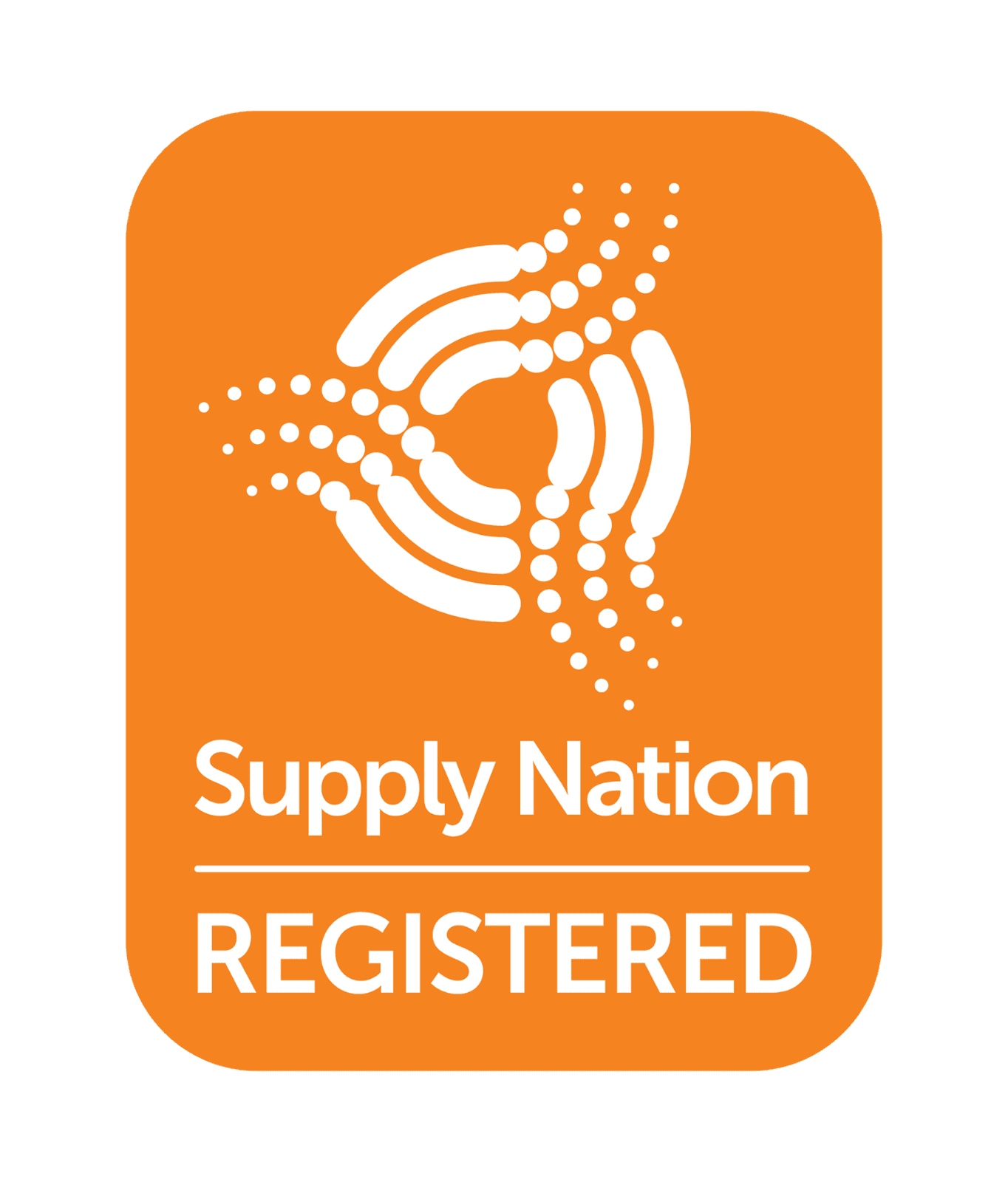Reflection by Mikaela Jade, Founder & CEO, Indigital
As Australia’s space industry evolves, so too does the understanding that culture and innovation must go hand in hand. Invited by the Australian Space Agency to join the First Nations Advisory for IAC 2025, Indigital Founder and CEO Mikaela Jade reflects on the role of Indigenous knowledge in guiding ethical, place-based innovation, and how collaboration across science, technology, and Country is redefining the future of space.
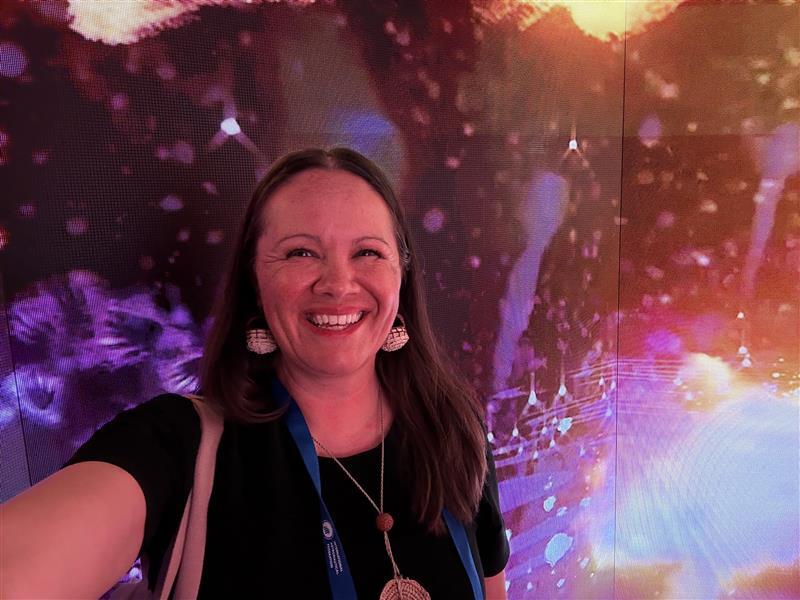
Reimagining Collaboration
Six months ago, the Australian Space Agency invited me to join the First Nations Advisory for the International Astronautical Congress (IAC) 2025 Sydney Host Plenary. I accepted with a deep sense of responsibility, not only as a Dharug woman whose Ancestors have read and sung the stars for millennia, but as a leader of an organisation that bridges Indigenous knowledge, technology, and innovation.
For First Nations peoples, space has never been a frontier, it’s a relationship. The stars have guided our navigation, seasons, and stories for millennia. Today, that same knowledge is informing how we design the next generation of space systems and policy frameworks. By integrating Indigenous knowledge with emerging technologies, we’re helping organisations build innovation that’s ethical, place-based, and globally relevant.
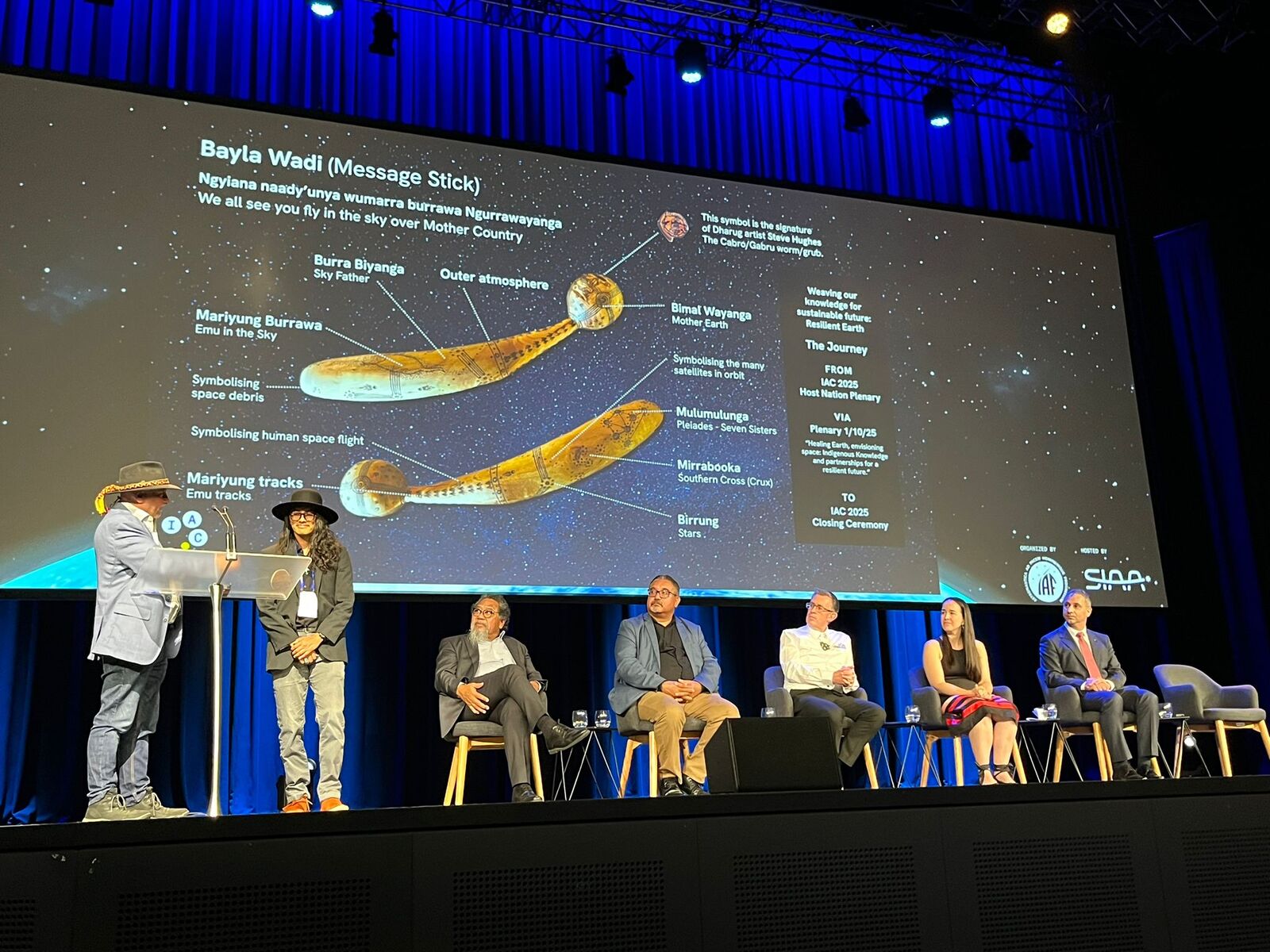
IMAGE: Professor Deen Saunders handing the message stick to Dine Navajo delegate Alvin D Harvey. The message stick was created by Uncle Steve Hughes.
Through Indigital’s work with my Dharug community on the Maya Nula project with SmartSat CRC, and with Traditional Custodians across Western Cape York through our Caring for Country program with Rio Tinto, we’ve seen how Indigenous knowledge systems can guide new approaches to exploration, science, and innovation, connecting technology with the deep intelligence of Country.
The invitation to bring that lens to the global space stage was not just symbolic, it was structural. It reflected a growing understanding across science and industry that cultural insight and ethical governance are the foundations of sustainable innovation.
Cultural Governance in the Space Economy
Working alongside Professor Reuben Bolt, Professor Deen Sanders OAM, Professor Martin Nakata, Kirsten Banks, and the Australian Space Agency’s Sharon Clarke and Alistair Kay has been transformational. Together, we explored what becomes possible when the governance of innovation is shared, when First Nations people are not only consulted, but co-design the frameworks that shape exploration, data, and discovery.
That principle also drives Indigital’s partnerships. Whether we’re designing digital literacy programs with communities or advising industry partners on social reciprocity, the approach is the same: start with Country, build relationships, and design systems that create value for all. This shift, from extraction to reciprocity, from consultation to collaboration, is not only ethical; it’s effective business practice.
At IAC 2025, I saw this mindset reflected on a global stage. More than 20 sessions this year were hosted by First Nations people, a clear signal that Australia’s space and innovation sectors are serious about doing things differently.
When Country Leads Innovation
Hearing Dharug Dalang sung and danced at the Opening Ceremony was one of the most moving moments of my life. In that instant, Country was present, not as backdrop, but as participant.
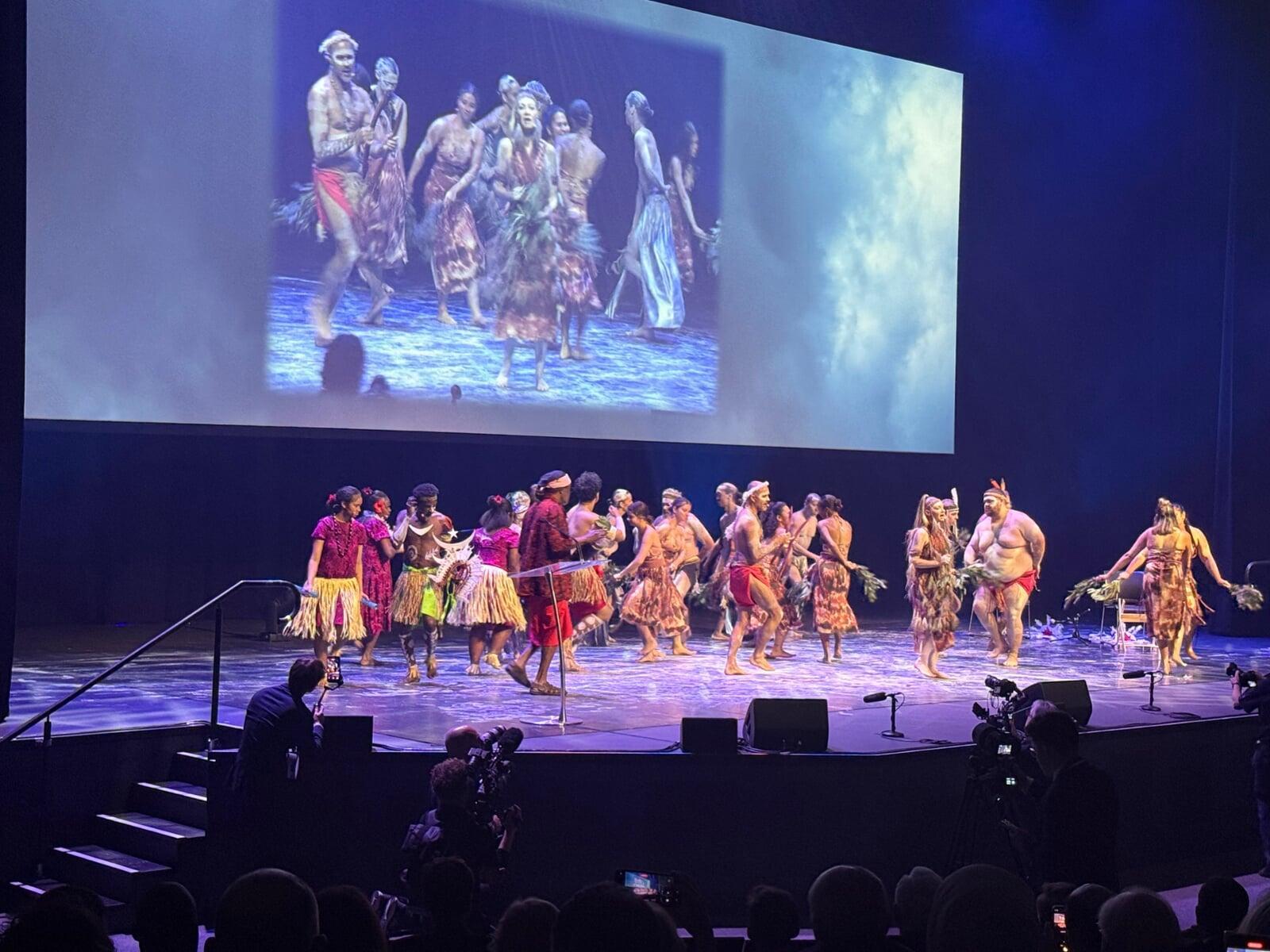
IMAGE: Jannawi Dance Clan led by Dharug woman Peta Strachan, welcome delegates to the congress.
Throughout the week, Dharug Elders, students, and young leaders met with 15 international astronauts, including Australia’s own Katherine Bennell-Pegg. Together, we held ceremony to connect those who walk among the stars with those who have long carried the stories of Sky Country. What I witnessed was governance in action, a model where cultural protocol, science, and innovation operate in alignment.
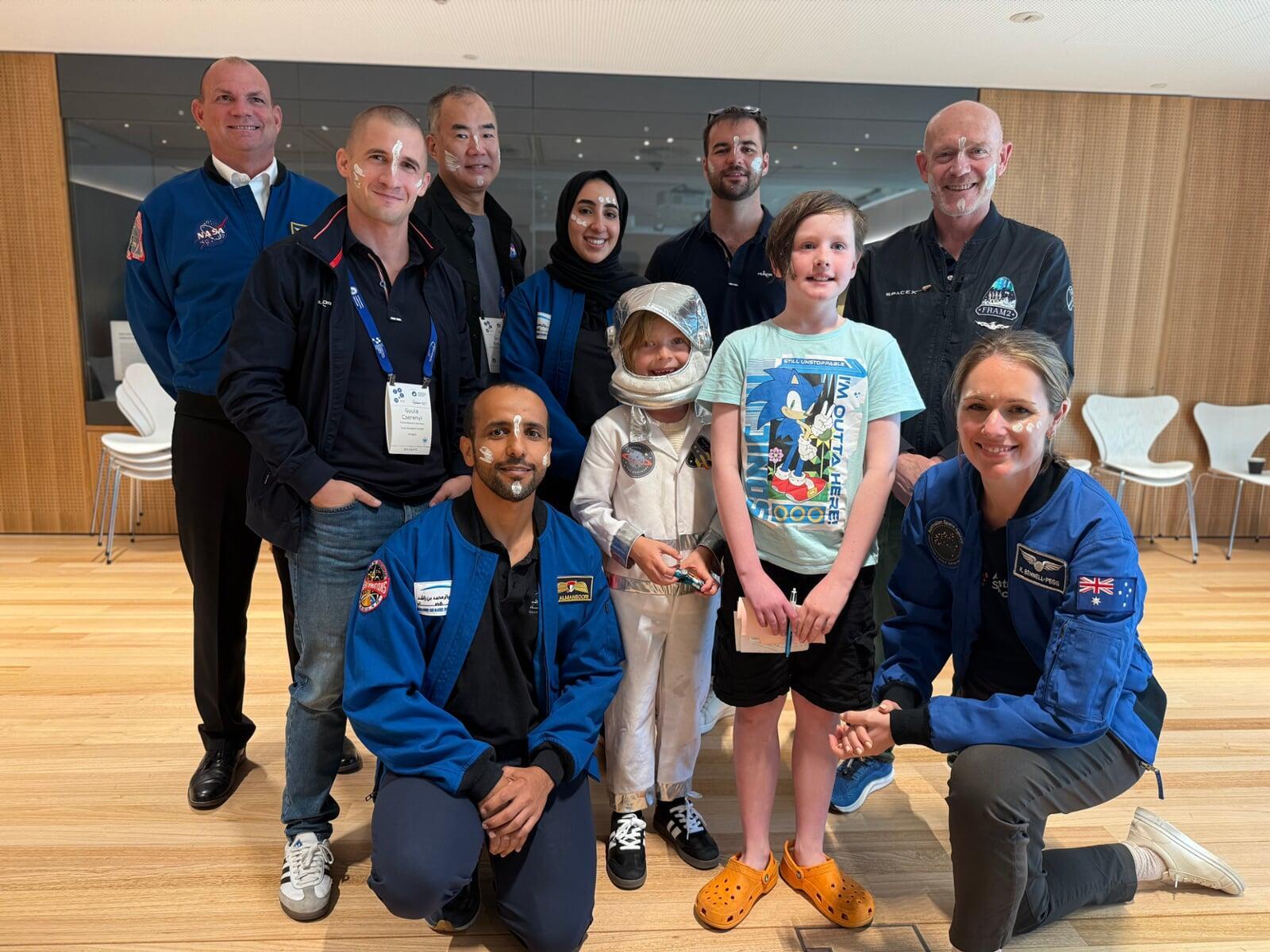
From Smart Satellites to Smart Systems
This same week also marked another milestone for me personally. I completed my three-year tenure on the Board of SmartSat CRC, an extraordinary learning journey into AI-based satellite design, development, and deployment, and into what it takes to build a strong research and innovation community around smart satellites.
I’m so proud of where the organisation is heading. It also coinsided with the launch of a new entity, the Australasian Space Innovation Institute (ASII), with a clear mandate to Make Space for Earth. Congratulations to Andy Koronios, Michele Allan AO, and the entire SmartSat team on a fantastic launch event, I can’t wait to see where ASII takes satellite innovation next.
As the sun rose over my forever beautiful Dharug nura, I thought about what this means for the future of technology, industry, and humanity. Our work at Indigital has always been about working with companies to see the systems they are part of, recognising that data, ecology, culture, and economy are not separate domains but interconnected.
The conversations we’re now having with the global space community are an extension of that. They’re not just about satellites or science, they’re about how we govern shared resources, design ethical frameworks, and shape the stories we tell about the future.
For our clients and partners, this is the opportunity: to build futures that are both technologically advanced and culturally grounded. To lead innovation that doesn’t just reach further but connects deeper.
Because when we honour Sky Country, we remember that the future has always been a shared story.

